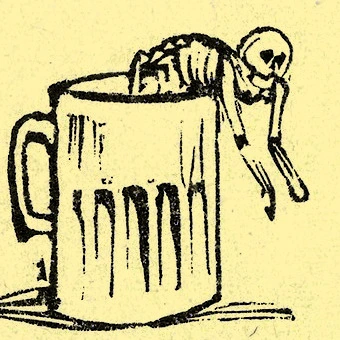Context: I’m missing a cutting board. So I wrote in our telegram family group: “Wo ist eigentlich unser zweites großes Schneidebrett hin?” (literally: “Where is actually our second big cuttingboard thither?”).
By using the modal particle “eigentlich” I insinuate that something is oddly off and express an emotional state of curiousity and/or mild discontent.
By adding “hin”, I notify that I ask because it is not where it is supposed to be and not because I don’t know where it should be.
Now I ask myself, how would I express this additional information in English?
Edit: Thank you all for your answers! I learned a lot. Just our cutting board is still gone, and probably enjoying it’s freedom somewhere … I suppose.
“Yall, where the fuck the other cutting board at?”
They said English, not American.
“Oi, where the bloody hell’s the other chopping board, mate?”
That’s the southern version. Otherwise just “where the fuck is the cutting board?!”
Spoken verbally, intonation can get you there. You can imagine this question asked perfectly calmly and innocently, “Where’s the cutting board?” “Oh it’s over there on the kitchen table.” “Ah.” Or you could imagine Batman growl screaming it in the Joker’s face. WHERE’S THE CUTTING BOARD?!?! TELL ME!!!
Now, in terms of phrasing, “Does anyone know where the cutting board is?” is probably fairly calm and innocent, “Who hid the cutting board?” is more accusatory/conspiratorial, “where’d the cutting board go?” implies you know where it was/should be, but it is not there, “What happened to the cutting board?” might mean it’s gone, or it might mean it’s damaged or in some adverse state, “Where the hell is the cutting board?” is probably getting a bit angry, “If I were a cutting board, where would I be?” means you’re either in a new kitchen and don’t know where the tools are stored, or it has been misplaced and you’re still calm about it…there are lots of options.
“Where has it gone?” = avoiding assigning blame. “Where did you put it?” = assigning blame.
English is a highly indirect language when it comes to these sorts of statements. “Have you seen the cutting board?” Would indicate that it’s not where it should be. “Where is the cutting board” would be too much of a personal accusation. It’s the type of thing you would say to a child that had hidden it. “Where do you keep the cutting board” would be how you ask when you honestly don’t know, like if you’re helping a friend prepare dinner.
Add an expletive. Example “where’s the fucking cutting board?”
Where the fucking fuck is the fucking fuck? Fuck!
Something is oddly off and I’m expressing emotional state of curiosity and/or mild discontent: “So …”
It is not where it should be, but I do indeed know where the place it should be is: reference to its place.
Here’s your equivalent question in English:
So … the cutting board’s not in its place. Anybody know where it is?
Actually this could be shorter:
So … anybody know where the cutting board has gotten to?
This phrase “has gotten to” vaguely refers to a child or animal that is missing; and the missing implies it has a known home location.
O cutting board, cutting board, wherefore art thou cutting board?
“Because otherwise you’d damage your kitchen counter”
Perfect response
“Deny thy counter and refuse thy knife”
German Modalpartikeln are rather unique to the language, so really hard to translate. To convey the same “feeling” you’d probably need to rely on other resources, like:
- synonyms;
- figures of speech;
- interjections;
- a more or less direct grammar;
- punctuation, emojis, etc.
For example, I feel like your sentence could be translated like “Our second cutting board is curiously missing. Does anyone know where it is?”. That “curiously” performing a similar job as “eigentlich”, and the indirect phrasing of the second sentence highlighting that you have no clue on where it is. It’s still missing the “it is not here” connotation of “hin”, but I guess that it’s good enough?
[Caveat lector: I’m not fully proficient in English, and certainly not in German. So… yeah.]
“It looks like the second cutting board has grown legs. Any ideas?”
The first sentence uses a sarcastic metaphor that indicates the correct placement is known but the item is not to be found there
The second sentence expresses an interest in knowing what others can tell the speaker about this situation - maybe not quite discontent, but definitely interest in it being located
In Germany, if something has grown legs, it’s implied that someone took it without asking or it has been stolen. At least that is how I am using it, or how I grew up using it.
It can also mean that in English but generally not specifically, depending on context.
“Where is actually our second big cuttingboard thither?"
I lol’d
“Eigentlich” here would be “by the way” because it’s used to express curiosity in a marginalised way. “wo ist… hin” is “where has… gone (to)”
So a more literal translation including the undertones would be “By the way, where has our big cutting board gone?”
‘Where has the cutting board wandered off to?’ Something passively accusatory. Everyone knows the board didn’t move itself, but the speaker is not assigning blame. …and because everyone knows that there is blame to be assigned, the annoyance is sort of implied?
Maybe “Does anyone know where the second big cutting board is?”
A slight change:
Does anyone know where the second big cutting board went?
The ‘went’ would reinforce the second point OP wanted, to clarify that they know where the board usually is, but not where it is now
“Who’s nicked the cutting board?” Indicates that it is not in its proper place and makes a (light-hearted) accusation of theft to indicate that it shouldn’t be anywhere else.
If spoken, heavily dependent on tone of course.
Are you asking how to express this information in a utilitarian way, as in, how do you convey the information to be understood? Or are you asking how to express it in a poetic way? The use of thither makes me think you’re hoping to express this is a jokingly poetic sense.
In an everyday colloquial way.
The directional particel “hin” is a commonly used word in German without an exact equivalent in English. “thither” is the best approximation I could find, though it’s usage is completely different, of course.
“gone to” is probably a more accurate translation, because “thither” is such an obscure word in English it gives the wrong impression.
From Copilot:
I understand that you want to know how to convey the nuances of the German modal particles “eigentlich” and “hin” in English. Modal particles are words that are used in speech to convey extra emphasis or emotion, without any real grammatical function. They are very common in German, but not so much in English.
There is no exact translation for “eigentlich” and “hin” in English, but you can use some words or phrases that have a similar effect. For example, you can use “actually”, “really”, “just”, “after all”, “anyway”, “by the way”, “in fact”, “well”, etc. depending on the context and the tone you want to express.
In your case, you could say something like:
Where did our second big cutting board go, anyway?
Where is our second big cutting board, really?
Where did our second big cutting board end up, by the way?
Where is our second big cutting board, after all?
These sentences imply that you are curious and/or slightly annoyed about the missing cutting board, and that it is not where it should be. Of course, the exact meaning and tone may vary depending on how you say them, and how the listener interprets them.











